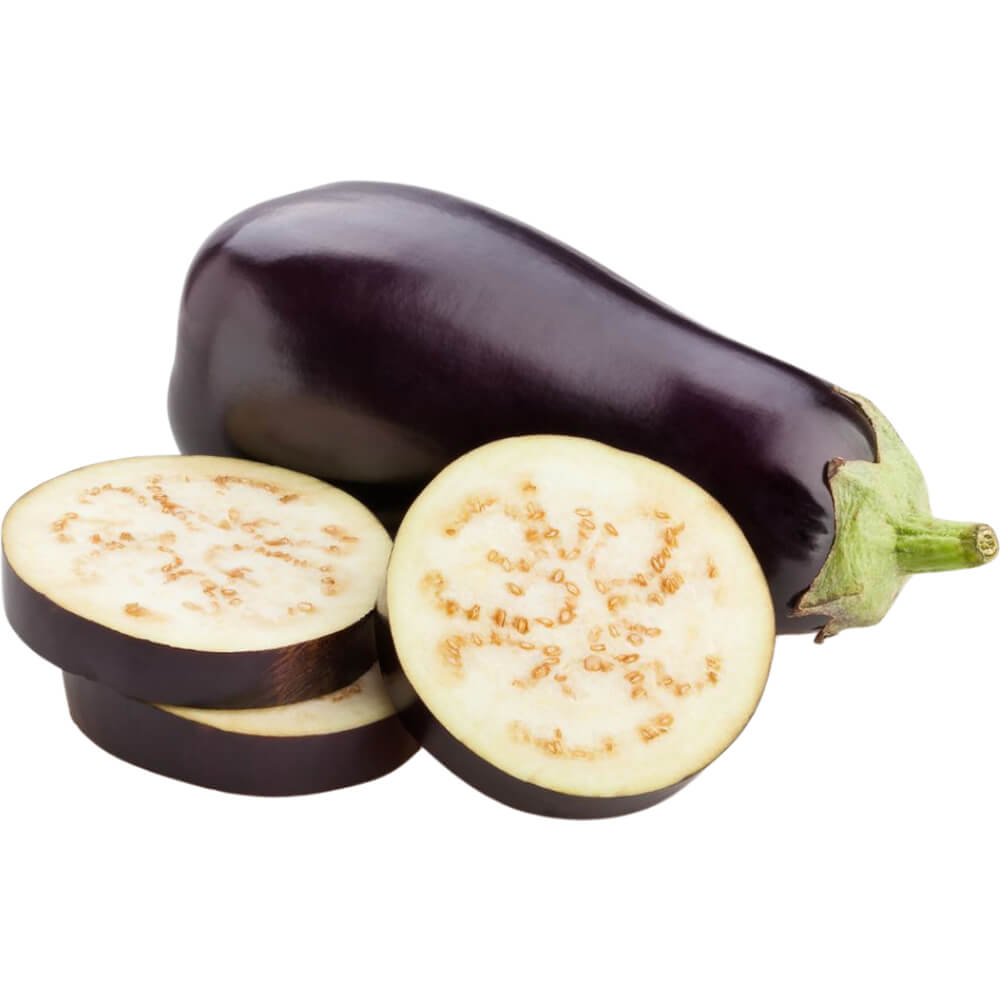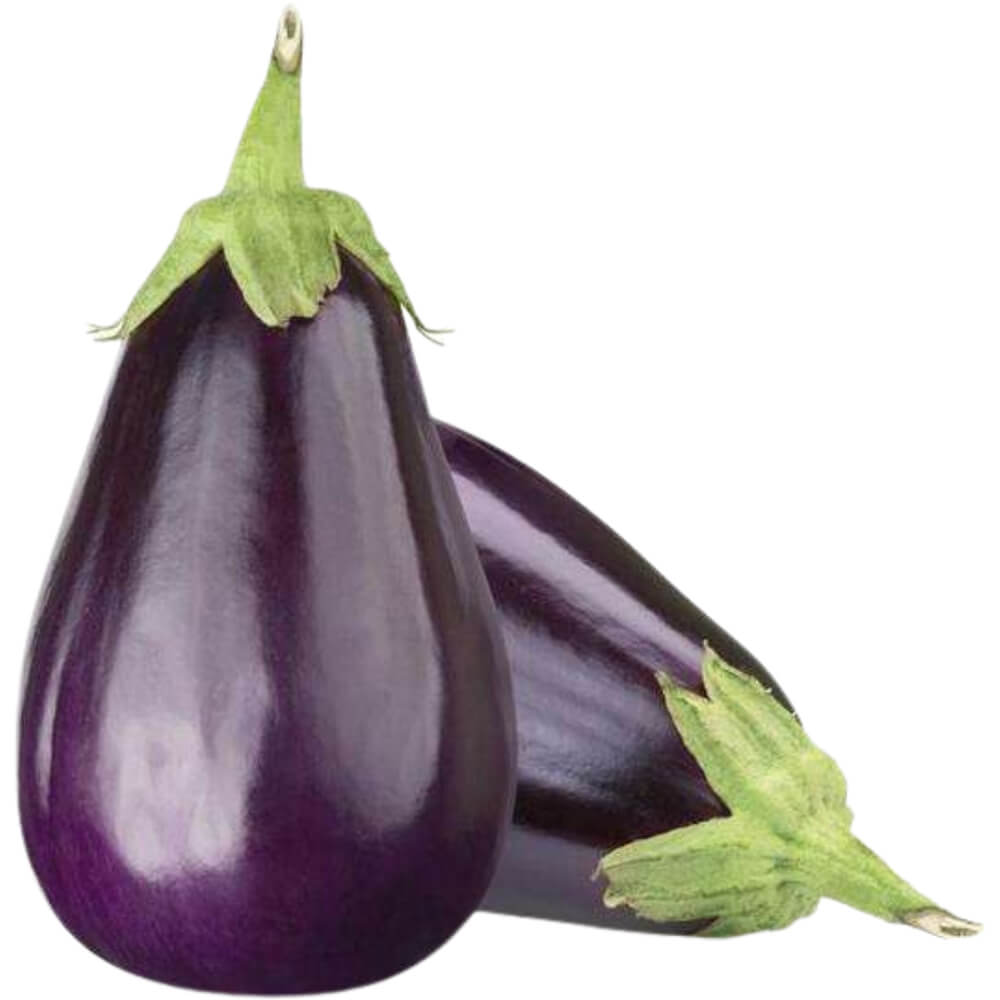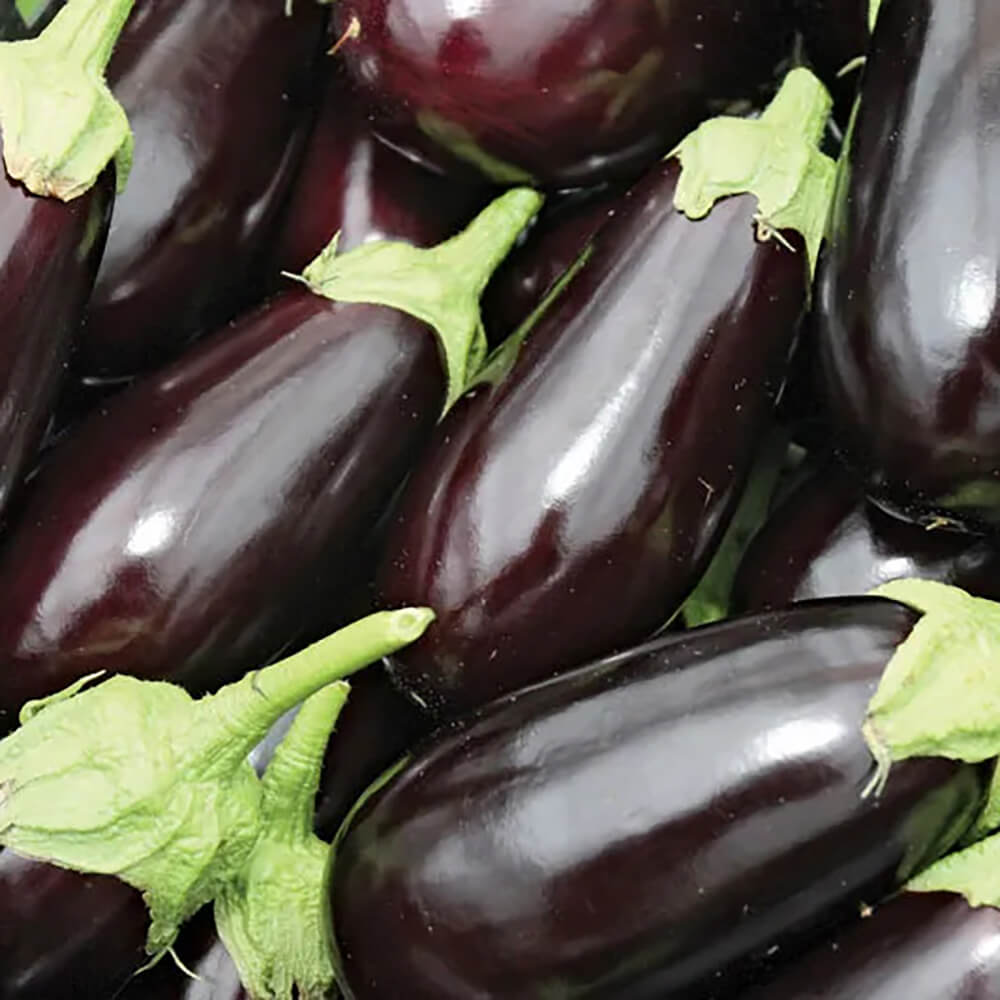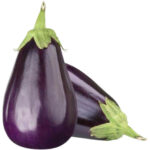About Eggplant (Big Size)
Eggplants also known as Aubergines, belong to the nightshade family of plants and are used in many different dishes around the world.
Although often considered a vegetable, they’re technically a fruit, as they grow from a flowering plant and contain seeds. There are many varieties that range in size and color. And while eggplants with a deep purple skin are most common, they can be red, green or even black.
In addition to bringing a unique texture and mild flavor to recipes, eggplant brings a host of potential other benefits. Globes vary greatly in size and regularity of shape. They may be perfectly pear shaped or quite lopsided but are always a deep purple color. The photo specimen was 8 inches long, 5-1/2 inches diameter and weighed 2-1/4 pounds, about an average size.
Nutrients
Eggplants are a nutrient-dense food, meaning they contain a good amount of vitamins, minerals and fiber in few calories.
One cup (82 grams) of raw eggplant contains the following nutrients:
- Calories: 20
- Carbs: 5 grams
- Fiber: 3 grams
- Protein: 1 gram
- Manganese: 10% of the RDI
- Folate: 5% of the RDI
- Potassium: 5% of the RDI
- Vitamin K: 4% of the RDI
- Vitamin C: 3% of the RDI
Eggplants also contain small amounts of other nutrients, including niacin, magnesium and copper.
Very Easy to Add to Your Diet
Eggplant is incredibly versatile and can be easily incorporated into your diet. It can be baked, roasted, grilled or sautéed and enjoyed with a drizzle of olive oil and a quick dash of seasoning. It can also be used as a low-calorie replacement for many high-calorie ingredients. This can reduce your carb and calorie intake, all while increasing the fiber and nutrient content of your meal.























Reviews
Clear filtersThere are no reviews yet.